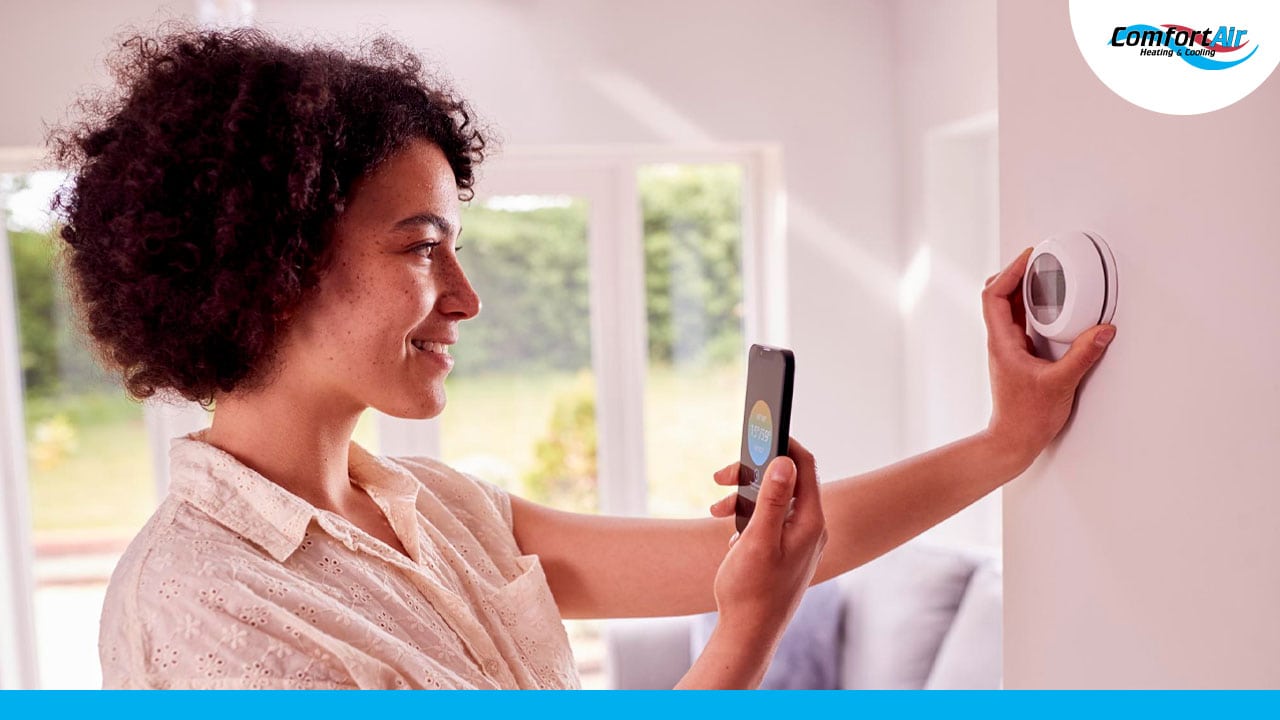
Are you tired of constantly adjusting your air conditioning, only to find that your home is once again too hot or too cold? Finding the right temperature setting can be a challenge, but it's crucial for maintaining a comfortable and energy-efficient home.
Your central air conditioning temperature can have a significant impact on your energy bill. A lower temperature can lead to an overpriced electricity bill, while a temperature that's too high can result in a stuffy and uncomfortable home. That's why it's essential to find a balance between comfort and cost-effectiveness.
We'll cover everything you need to know, including the good temperature range for maximum comfort, the best AC setting for the season changes, and bedtimes, how to adjust your air conditioning for energy efficiency, and much more. Whether you're looking for a cozy sleeping environment, a cool and refreshing office, or a comfortable living room, this guide has got you covered.
The summer months in Florida can be hot and humid, making it essential to have a comfortable and energy-efficient air conditioner. For maximum comfort and efficiency the thermostat setting should be between 75° to 78°. This temperature range offers a comfortable and energy-efficient setting during waking hours. For a comfortable temperature while sleeping, set your thermostat lower, around 70° to 73°.
If you'll be away from home for an extended period, it's a good idea to set the temperature higher or turn off the air conditioning to save energy. High humidity levels in Florida can also affect the temperature, so you may need to adjust accordingly.
By following these guidelines, you can enjoy the cool air in your comfortable and sustainable home during the summer in Florida.
Winter in Florida may be mild, but the fluctuating temperatures and humidity levels can make it difficult to find the right balance between a comfortable and energy-efficient home. When it comes to setting your thermostat during the winter months, the best setting range for maximum comfort and efficiency is typically between 68 and 72 degrees Fahrenheit.
Keeping your thermostat in this range can help you maintain a comfortable indoor temperature while also avoiding high energy bills.
You can also save energy and money by setting your thermostat a few degrees lower at night or when you're away from home. By finding the right temperature range and implementing energy-saving practices, you can keep your home cozy and cost-effective all winter long.
Getting a good night's sleep is essential for a healthy lifestyle, and having a comfortable sleeping environment is crucial. Air conditioners can play a big role in creating the ideal sleep environment, but finding the right temperature can be challenging.
While there is no hard and fast rule, it is generally recommended that sleeping temperatures be cooler than waking temperatures.
The recommended temperature setting for sleeping with an AC unit is between 68° to 75°. This temperature range is cool and comfortable, promoting restful sleep. Personal preferences and room factors may impact this setting, but experimenting can help find the perfect balance. Create a comfortable sleep environment by finding the best air conditioner temperature for you.
Temperature plays a significant role in sleep quality. A cool, comfortable environment is ideal for promoting restful sleep. The human body naturally lowers its temperature as it prepares for sleep, and a cool room helps maintain this temperature drop. This can help the body fall asleep faster and stay asleep for longer.
Studies have shown that a room temperature between 68°F to 75°F is ideal for sleep. This range is cool enough to promote a natural drop in body temperature but not so cold that it becomes uncomfortable.
On the other hand, a room that is too warm or too cold can interfere with the body's natural sleep processes, making it difficult to fall asleep or stay asleep. Additionally, extreme temperatures can cause discomfort and restlessness, leading to poor sleep quality.
As a provider of home comfort solutions, we understand how important it is for parents to create a safe and comfortable sleeping environment for their babies. One key factor in achieving this is maintaining an appropriate temperature in the baby's room.
The American Academy of Pediatrics recommends a temperature range of 68 to 72 degrees Fahrenheit for a baby's sleeping area. However, every baby is unique, and it's important to monitor your baby's behavior and adjust the temperature as needed to ensure they are comfortable.
A properly functioning air conditioning system can help you achieve the ideal temperature for your baby's sleeping environment, ensuring that they get the restful sleep they need to grow and develop.
Our team of experienced technicians is here to help you ensure that your AC system is running at peak efficiency, so you can provide the best possible environment for your little one.
Air conditioning is essential to ensuring a comfortable and healthy environment in your home. However, with regular use, your AC unit may start to lose efficiency and effectiveness. Here are some tips to help you maintain the efficiency of your air conditioning system:

Schedule regular maintenance with a professional HVAC technician to keep your air conditioning system running smoothly and efficiently.
Dirty air filters can reduce the efficiency of your AC unit, leading to increased energy consumption. Make sure to replace or clean your air filters every 3 to 6 months.
The outdoor unit should be clear of debris or vegetation. This will help to improve airflow and prevent damage to the unit.
Poor insulation can lead to heat loss in your home and increase the strain on your air conditioning system. Upgrading your insulation will help improve energy efficiency and reduce energy consumption.
A programmable thermostat allows you to set a specific temperature schedule and reduces energy consumption when you're away from home.
Vents and ducts should be kept clear of any obstructions to ensure proper airflow throughout your home.
By following these tips, you can maintain the efficiency of your air conditioning system, reduce energy consumption, and ensure a comfortable and healthy environment in your home.
If you're experiencing any issues with your air conditioning, don't hesitate to contact Comfort Air, we are a proud Rheem Pro Partner. Call us today at (813) 565-9116 to schedule your appointment.
Our licensed, bonded, and insured technicians are ready to thoroughly evaluate your AC system and offer effective solutions to any problems you're facing. With over 25 years of experience and a commitment to customer satisfaction, you can count on us to deliver exceptional results every time.
Don't wait any longer; call Comfort Air now and experience the comfort and peace of mind of choosing a trusted and experienced air conditioning service provider.